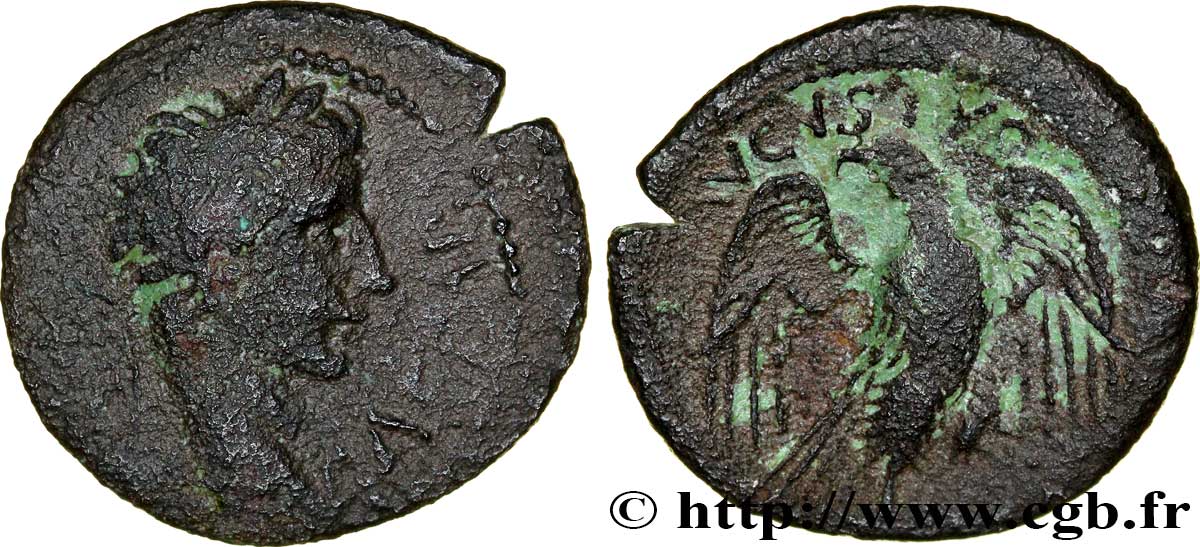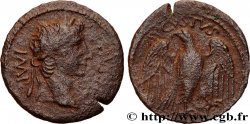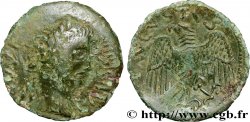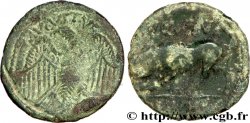E-auction 40-15464 - bga_181287 - CENTER, UNSPECIFIED Bronze à l'aigle (semis ou quadrans), imitation
You must signin and be an approved bidder to bid, LOGIN TO BID. Accounts are subject to approval and the approval process takes place within 48 hours. Do not wait until the day a sale closes to register. Clicking on « bid » constitutes acceptance of the terms of use of cgb.fr private e-auctions.
Bids must be placed in whole Euro amounts only. The sale will start closing at the time stated on the item description; any bids received at the site after the closing time will not be executed. Transmission times may vary and bids could be rejected if you wait until the last second. For further information ckeck the E-auctions F.A.Q.
NO BUYER'S FEE.
NO BUYER'S FEE.
| Estimate : | 40 € |
| Price : | 11 € |
| Maximum bid : | 15 € |
| End of the sale : | 20 January 2014 15:07:00 |
| bidders : | 4 bidders |
Type : Bronze à l'aigle (semis ou quadrans), imitation
Date: c. 15-10 AC.
Metal : bronze
Diameter : 18,5 mm
Orientation dies : 12 h.
Weight : 2,46 g.
Rarity : R3
Coments on the condition:
Frappe relativement centrée sur un flan large et granuleux, avec une patine sombre et quelques zones vertes surtout au droit
Obverse
Obverse legend : [IMP] - CAESAR.
Obverse description : Tête laurée d’Auguste à droite ; grènetis.
Obverse translation : “Imperator Cæsar”.
Reverse
Reverse legend : AVGVSTVS.
Reverse description : Aigle de face, les ailes déployées ; légende au-dessus.
Commentary
Si ce monnayage est une imitation servile du monnayage romain, il doit néanmoins être considéré comme gaulois au même titre que les premiers statères imités des statères de Philippe II.
Sur cet exemplaire, les légendes sont presque complètes, surtout au revers.
Sur cet exemplaire, les légendes sont presque complètes, surtout au revers.








 Report a mistake
Report a mistake Print the page
Print the page Share my selection
Share my selection Ask a question
Ask a question Consign / sell
Consign / sell
 Full data
Full data









